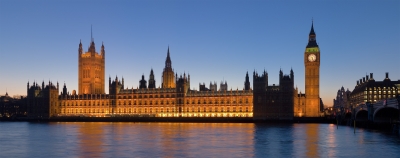The European Union (Notification of Withdrawal) Bill is winding its convoluted way through the Commons and the Lords, but what can, or will, the upper house really do about Brexit?
Perhaps the most striking image from yesterday’s proceedings at the House of Lords – much more telling than the many Peers standing up to have their say on the country’s departure from the European Union – was that of Theresa May, the Prime Minister, sitting on the steps of the throne in the Chamber watching the debate intently.
Prime Ministerial visits to the House of Lords, despite being just a short walk down the corridor from the House of Commons, are extremely rare and this appearance was a pointed symbol of how important the Bill is to the government. The PM has made it clear she intends to trigger Article 50 in March, formally commencing the process of taking the UK out of the EU. Elected MPs in the House of Commons voted by a large majority to enable this to happen, but the unelected House of Lords also has a formal role to play in this process, and the Conservatives only have 252 members out of a total of 805. The PM’s presence in the Chamber sent a clear message – ‘do not interfere in the will of the people’.
The House of Lords has traditionally been seen in some quarters as a necessary foil to its elected counterparts in the Commons. The Lords are able to pass a critical eye over proposed legislation, offering expert insight without the encumbrance of having to toe the party line. Many members of the Lords can call upon years of experience from a wide range of roles held before their ennoblement, and their expertise is considered to provide a valuable balance and counterpoint to the government of the day’s ambitions.
However, the Lords’ biggest perceived weakness has always been its unelected status and this has been thrown into sharp relief in the debate around Brexit. The reform, or even abolition, of the House of Lords has been a fond fantasy of many in government over the years, but the appetite to take action has so far never been sufficient. Many commentators are saying now that Brexit could be the straw that breaks the camel’s back.
Following the referendum last summer the decision to leave the European Union has been proudly championed by Brexiteers, and ruefully acknowledged by many Remainers, as ‘the will of the people’. In last night’s debate, former Conservative Leader, and remain voter, Lord Hague warned against the Lords challenging that decision, arguing we could face ‘the most protracted, bitter, potentially endless conflict in British society’ if the Lords sought to reopen the debate. Conservative MP Dominic Raab has argued that many peers ‘have a vested interest’ in remaining in the EU, as they receive pensions from Europe: “The public would be rightly outraged if peers voted to protect their Brussels bonuses rather than respect the referendum result.”
The consensus of opinion is that the Lords will step back from openly challenging Brexit (i.e. by voting against the Bill), keeping their powder dry, so they can effect some small but meaningful changes to the proposed legislation in the Committee stage. Even this will be seen as tantamount to treason in some quarters, and many peers may stay their hand rather than incurring the ‘wrath of the people’. Interestingly, a new documentary series, Meet the Lords, starts on BBC2 on Monday 27th February and advance press has already focused on negative aspects highlighted in the programme. References to peers claiming their £300 a day attendance allowance ‘for doing nothing’, and the former Liberal Democrat Chief Whip calling it the ‘best day care centre for the elderly in London’, provide damaging ammunition for those seeking to curb the Lords’ power and influence.
Following her appearance in the Chamber last night, no doubt the Prime Minister will be tuning in to BBC2 next Monday too. She is determined to keep both Houses in order, and will use all ammunition available to do so. If the Lords are seen to overstep the mark, it could potentially trigger a constitutional crisis with massive implications for the upper house, and for the country as a whole.




